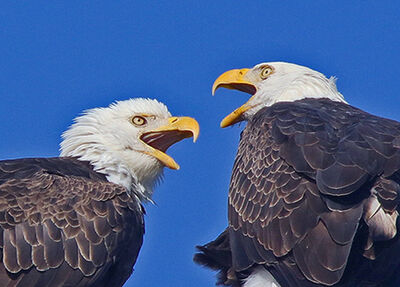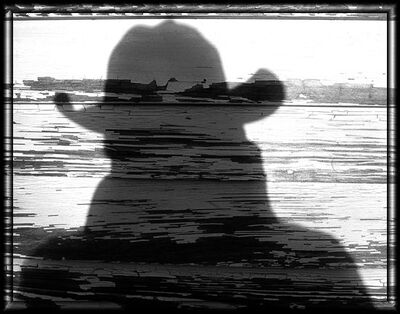Exposure compensation
Jul 5, 2017 18:28:11 #
For me, EC is an absolute necessity -MOST- but not ALL the time. It is highly situationally specific !
The ONLY time I go fully manual (without EC) is -IF- the lighting is constant and unchanging and the subject matter reflectivity is fairly constant an unchanging - and these situations together are very INFREQUENT !
At this stage of my life I prefer to trust the metering/EC more than my ability to - in the heat of the moment - recognize changing light/subject reflectivity and speedily change manual settings ! Which is one reason why, most of the time, I am using an EVF - to make timely EC changes.
RARELY is my EC zeroed out !
The ONLY time I go fully manual (without EC) is -IF- the lighting is constant and unchanging and the subject matter reflectivity is fairly constant an unchanging - and these situations together are very INFREQUENT !
At this stage of my life I prefer to trust the metering/EC more than my ability to - in the heat of the moment - recognize changing light/subject reflectivity and speedily change manual settings ! Which is one reason why, most of the time, I am using an EVF - to make timely EC changes.
RARELY is my EC zeroed out !
Jul 5, 2017 18:33:39 #
imagemeister wrote:
For me, EC is an absolute necessity -MOST- but not... (show quote)
I shoot manual frequently; whenever background light levels change significantly relative to my subject. So sports (especially skiing), concerts, theater. Also when I'm shooting panoramas. And when using lighting; portraits, still life, events.
Jul 6, 2017 01:46:53 #
RWR
Loc: La Mesa, CA
BebuLamar wrote:
Only if you always refer to the meter.
That’s precisely what I’ve been saying all along. Wikipedia gives the same definition (https://en.wikipedia.org/wiki/Exposure_compensation). And of course it applies as well to manual as to any automatic exposure modes. (Scroll down to “Exposure compensation using the Zone System.”)
Jul 6, 2017 02:44:42 #
RWR wrote:
That’s precisely what I’ve been saying all along. Wikipedia gives the same definition (https://en.wikipedia.org/wiki/Exposure_compensation). And of course it applies as well to manual as to any automatic exposure modes. (Scroll down to “Exposure compensation using the Zone System.”)
That is true! EC affects only the meter, and anything else is just the indirect effect of changing what the meter reads. Manual exposure changes only if auto ISO is enabled or if match needle technique is used.
Jul 6, 2017 04:34:22 #
therwol
Loc: USA
folkus wrote:
Do you need to determine EC by individual situations or is it safe to create a general one for the camera that will work in most instances? Thanks for your help.
I have one lens that consistently underexposes by around 2/3 f stop no matter which exposure method is used, even manual, even with the lens wide open to exclude diaphragm issues. I set the exposure compensation to +.7 whenever this lens is on the camera as a starting point. I have to remember to reset it to 0 when I take the lens off. (The lens is an old 55mm f/2.8 AF Micro. It's not worth my time or money to have someone take a look at it.)
My camera (Nikon D810) allows you to make a global adjustment to the meter in each of the metering modes separately. I've never explored that. It seems to me that Nikon put that there to allow you to make an adjustment that should have been made before the camera left the factory.
When a particular scene "fools" the meter, even in the manual mode, bracketing is cheap and easy.
Histograms are very useful if you have a little extra time.
Jul 6, 2017 11:50:55 #
Jul 6, 2017 12:28:02 #
therwol
Loc: USA
johnala wrote:
Whatever happened to bracketing? You don't know what that means? Tsk.
Yes. Isn't it interesting that no one has brought up bracketing before this? Newer cameras can be set to do it automatically. It wouldn't really work for continuous shooting of moving subjects, but what about for static subjects?
Jul 6, 2017 13:18:04 #
therwol wrote:
Yes. Isn't it interesting that no one has brought up bracketing before this? Newer cameras can be set to do it automatically. It wouldn't really work for continuous shooting of moving subjects, but what about for static subjects?
When shooting film and not getting the negatives for analysis until at least hours later there is great significance to the insurance of bracketing. With digital and nearly instant feedback that is less often useful.
But one example where bracketing with digital is very useful is when shots cannot be repeated. Any type of "event" is an example. Shooting in three shot high speed bursts with say 1/2 fstop bracketing just about guarantees results. Not just exposure either, but group shots that can be edited so that nobody is blinking or otherwise looking odd.
Jul 6, 2017 13:57:40 #
johnala wrote:
Whatever happened to bracketing? You don't know what that means? Tsk.
It was mentioned at 4:34 am

--
Jul 6, 2017 14:24:14 #
johnala wrote:
Whatever happened to bracketing? You don't know what that means? Tsk.
I didn't mention bracketing because I did not want to delute the issue re EV. I am aware of the power and utility of bracketing and use it regularly
Jul 27, 2017 18:02:35 #
If you want to reply, then register here. Registration is free and your account is created instantly, so you can post right away.



